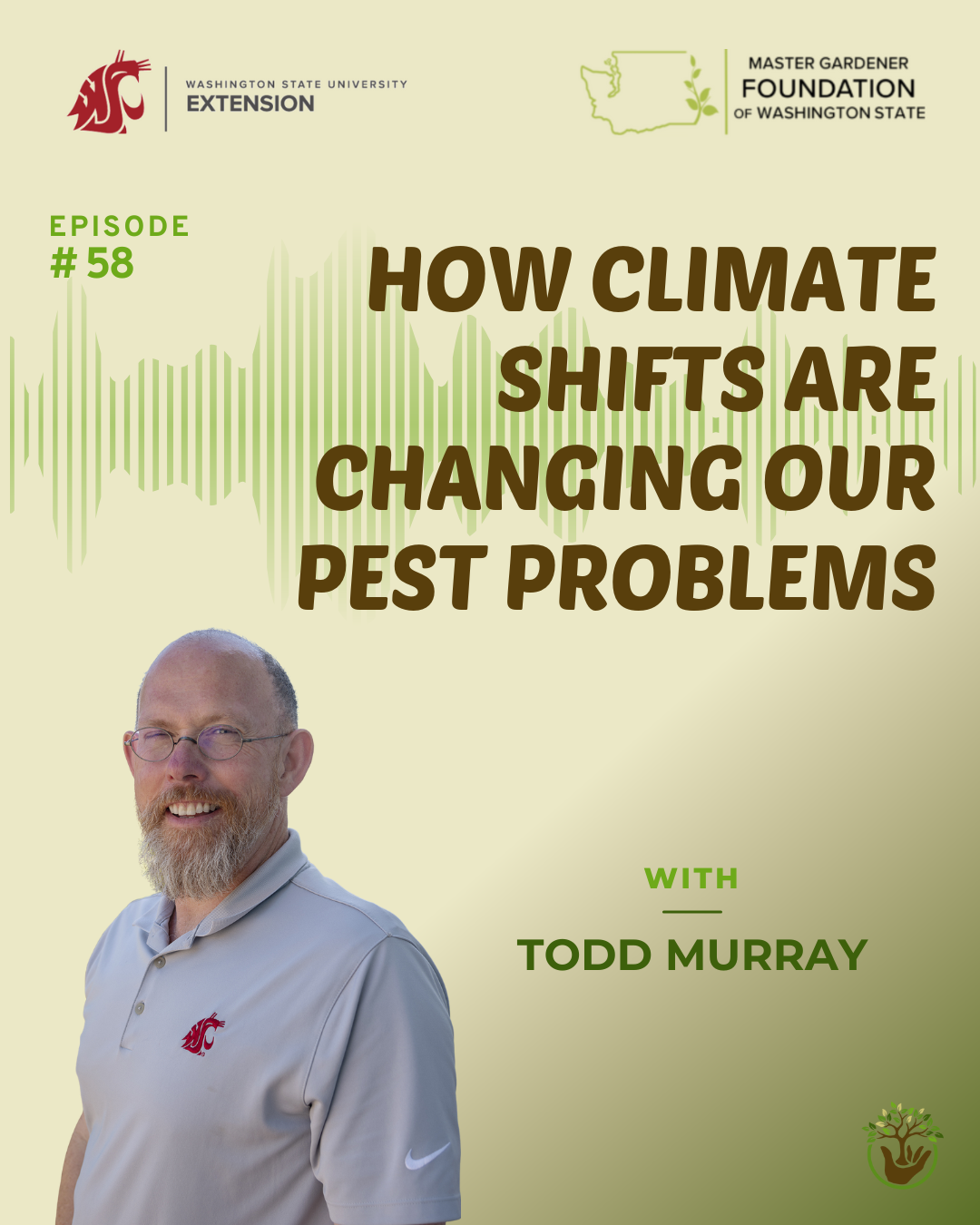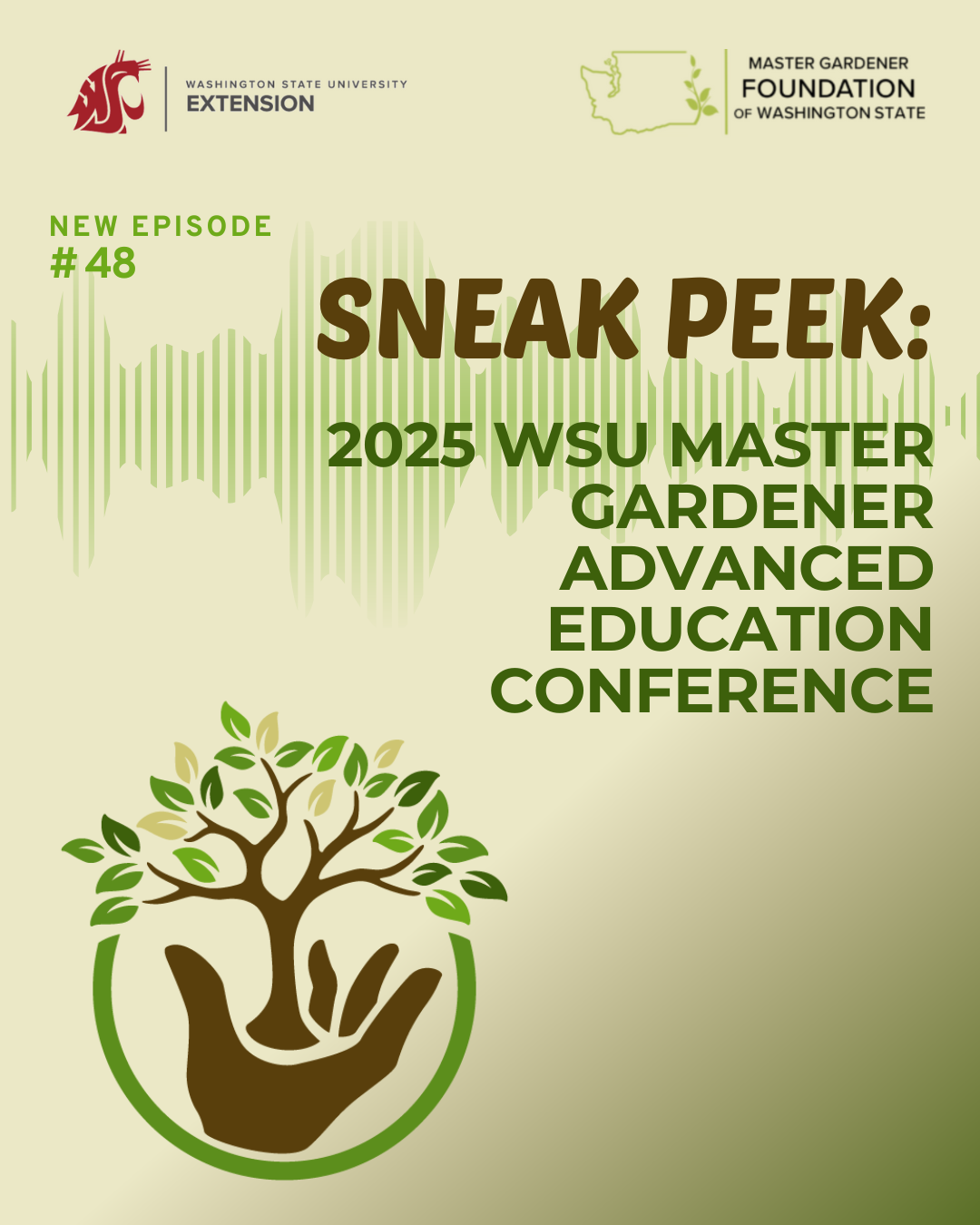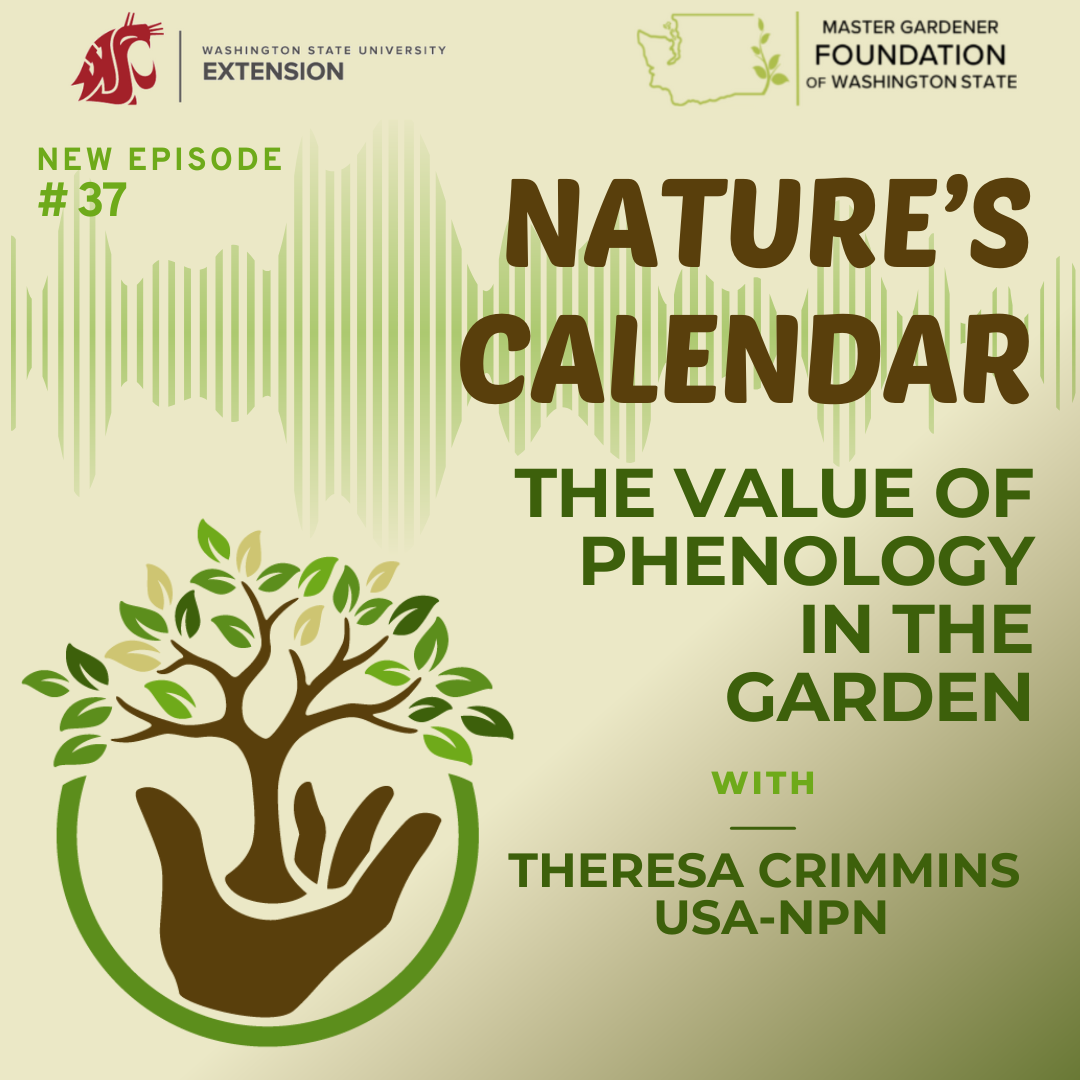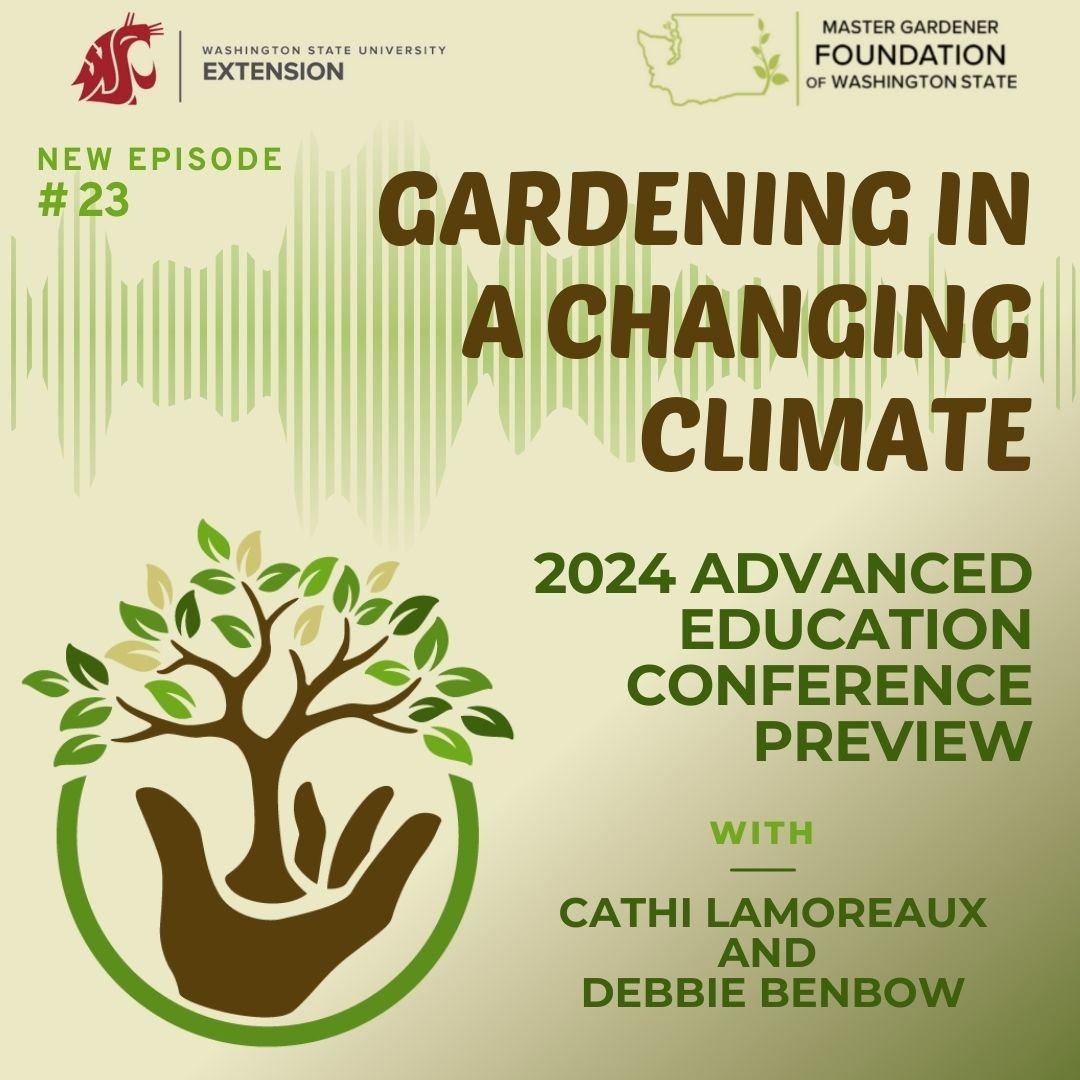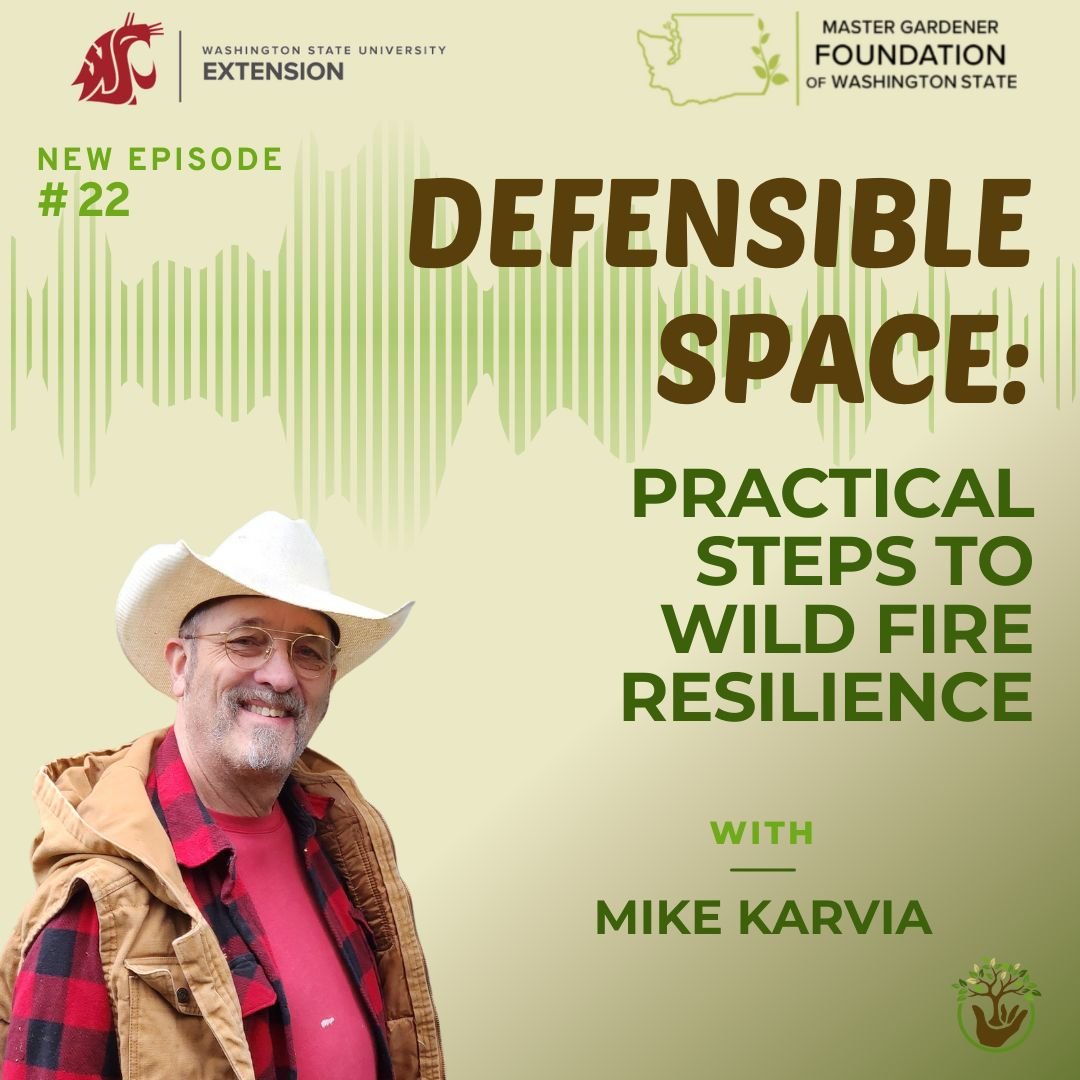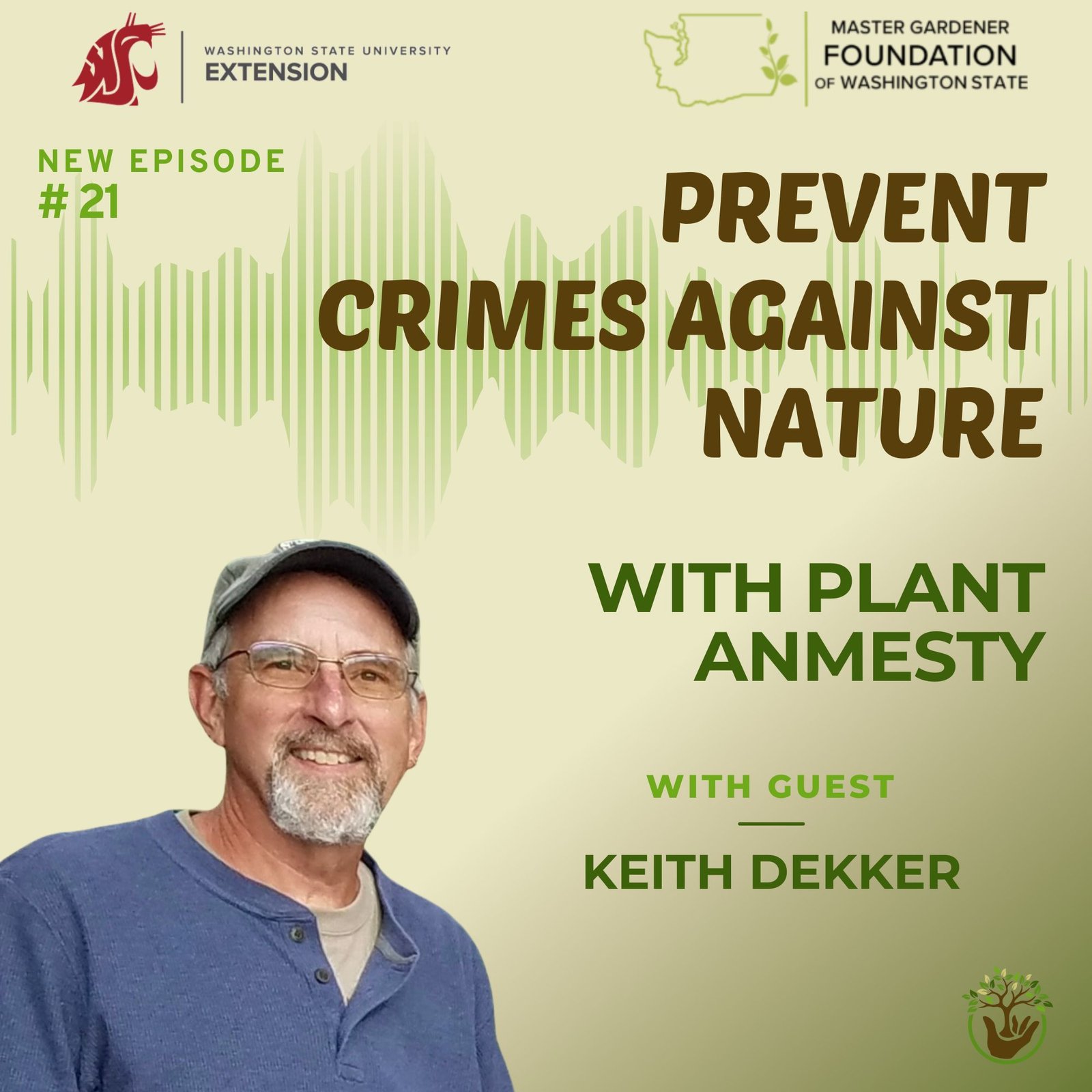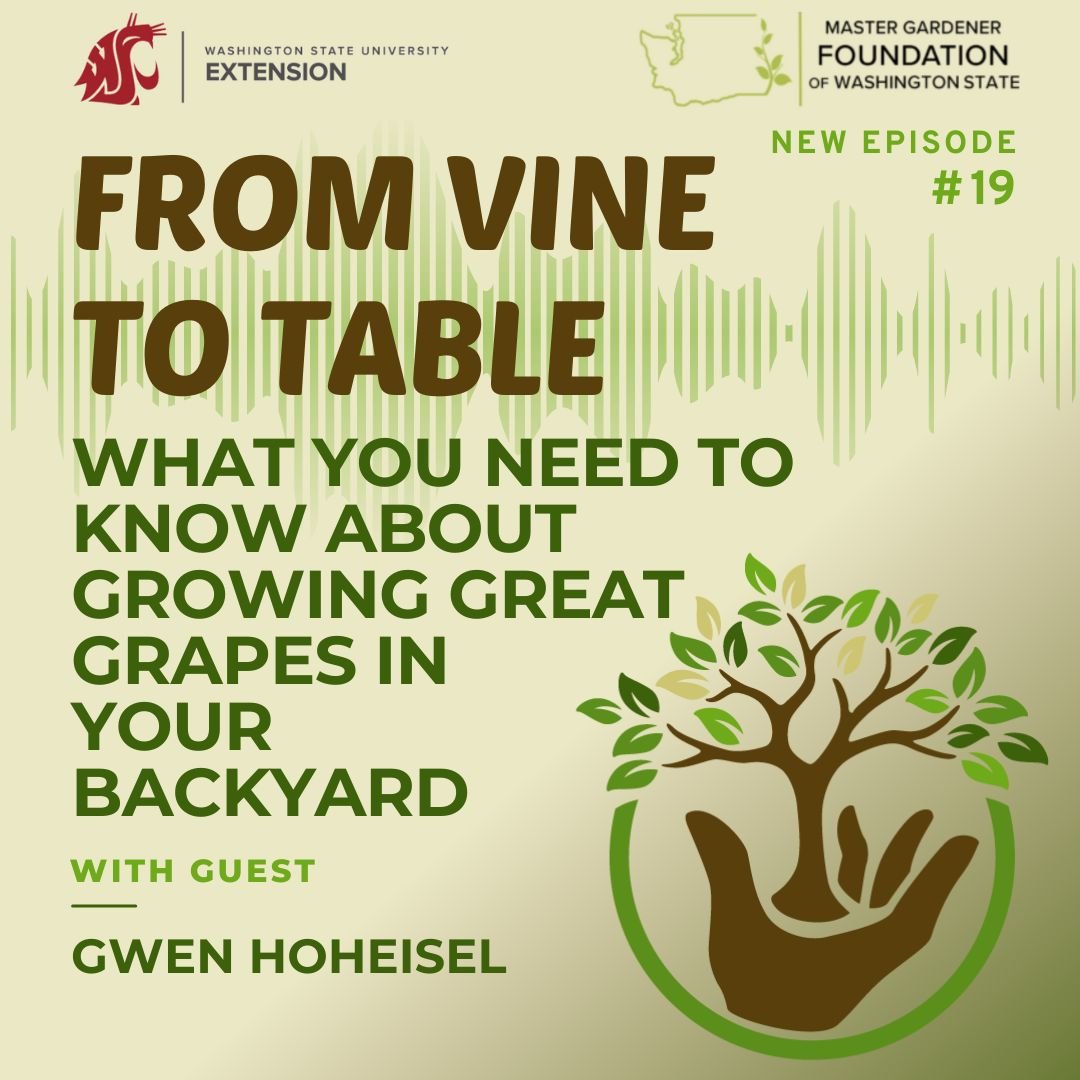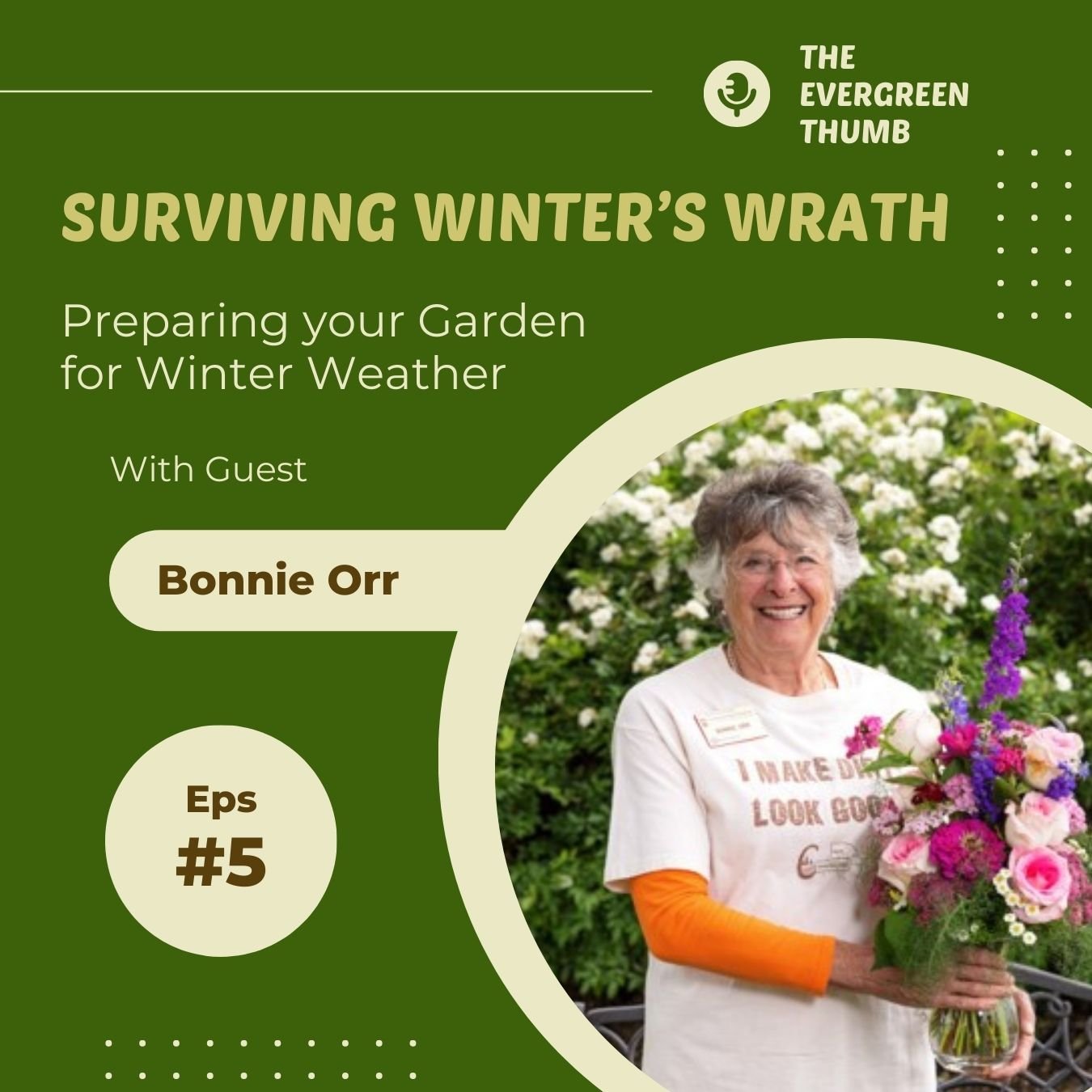
Cultivating Resilience in a Changing Climate
This is a list of Evergreen Thumb episodes related to Climate Change. The WSU Extension Master Gardener volunteer program teaches ways to create resilient landscapes adapted to our changing climate.
Warmer winters, hotter summers, flooding, and droughts affect plant growth and impact the many organisms that interact with plants (insects, pollinators, diseases, and microbes). Home gardeners have an important role to play in combating climate change. Choosing human-powered tools like push mowers, rakes, and hand clippers over gas-powered tools such as lawnmowers and leaf blowers can reduce greenhouse gas emissions. Choosing resilient plants well adapted to your soil and climate and using research-based horticulture practices to manage soil will help keep your landscape resilient. Composting on-site closes the loop on waste, yields valuable nutrients, and helps to reduce methane emissions from landfills.
For additional information on how WSU Extension Master Gardeners are cultivating resilience in a changing climate, visit the WSU Extension Master Gardener program website.
Guest Todd Murray joins Erin Hoover to talk about how climate change is affecting plants through shifting weather patterns, making them more vulnerable to both native and non-native pests, and how gardeners can adapt to these changes.
Excited for AEC 2025? Join us as Educational Outreach Program Lead Jackie Trimble and Conference Director Cathi Lamoreux sit down with our host, Erin Hoover, to share a sneak peek of the amazing speakers and topics we have in store. Don’t miss it!
Sarah Stewart of WSU Forestry and The Women Owning Woodlands program joins us to talk about how to care for and manage your backyard forest.
In part one of our Program Priority Series we are going to talk about climate change. Master Gardener and Climate Actions Teams founder Mike Peronto joins us to share tips on how to create resilient landscapes in our changing climate.
USA National Phenology Network Director Theresa Crimmins joins us to explain how to use Phenology to optimize your planting and harvesting schedules.
Cassie Cichorz joins us from WSDA to chat Japanese Beetles and what gardeners can do slow the spread of these invasive pests.
AEC Co-Chairs Cathi Lamoreaux and Debbie Benbow give us a preview of the 2024 WSU Extension Master Gardener Advanced Education Conference
Mike Karvia, a retired Assistant Fire Chief of 30 years at The Pacific County Fire District No. 1 and Master Gardener of 10 years joins us to discuss how to create defensible space to help homeowners be more resilient against the threat of fire.
Keith Dekker, a Clallam County Master Gardener and PlantAmnesty volunteer, joins us to discuss how to prune your plants to prevent crimes against nature.
Gwen Hoheisel, a WSU Perennial Fruit Crop and Sustainable Pest Management Extension Specialist joins us to talk about how to be successful when growing grapes in home gardens and beyond.
Valorie Savisky joins us to chat about what successful rain gardens are and how to build them in the PNW.
Doug Collins joins us to talk about soil carbon sequestration and how gardeners can contribute to a greener future.
Elaine Jamerson, a Kittitas County WSU Extension Master Gardener, joins us to talk about the Xeriscape garden they installed last year.
Have you ever heard of permaculture?
In this episode, I offer an introduction to Permaculture, a sustainable and holistic approach to gardening.
Tim Kohlhauff, certified arborist, joins me to talk about winter issues in trees and shrubs.
In this episode, Bonnie Orr, a Chelan/Douglas County WSU Extension Master Gardener, discusses various strategies for preparing gardens for winter weather. She emphasizes the importance of understanding your local environment, including factors like sunlight exposure, climate patterns (such as El Niño or La Niña), and the unique features of your yard, such as slopes, trees, and shade.
